Dr. Nabil Amor and his colleagues have made a remarkable discovery: genetic evidence of Arabian leopards (Panthera pardus nimr), a critically endangered subspecies that has been declared locally extinct in the region.
His results are timely. Believing the leopards to be extinct, conservationists are planning to introduce non-native leopards to Saudi Arabia. Without this genetic evidence, these efforts risk destroying the native population instead of protecting them.
“We are publishing the first molecular proof of the existence of the Arabian leopard in this region. Other works have described this species as extinct in Saudi Arabia, but we had always wondered if there was still a small population left. We were very excited when we found that the samples were a molecular match!“
Getting to this achievement wasn’t easy. The field sites are in the remote Sarawat Mountains, near the Yemeni border, over 1,000 kilometers away from the laboratory in Riyadh. The terrain is rocky, with a semi-desert climate, and the journey itself a logistical challenge.
On their first trip, the team had to first bring the scat samples back to the lab in Riyadh for analysis to find out what species were represented, and if they had collected any interesting results. Carrying the samples home meant travelling with preservation materials, like dry ice or liquid nitrogen, which are both costly and extremely difficult to transport to remote mountain sites.
This traditional approach also lacked flexibility. Only back in the lab would they know if the samples were intact and useful. If they identified something noteworthy — potentially even evidence of a new species — they would need additional samples, meaning another expensive and logistically demanding expedition to return to the same remote site.
“During fieldwork, it was very difficult to bring along dry ice or liquid nitrogen for sample preservation. After the first trip, I began looking for other ways to do all my molecular work in the field. That’s when I discovered Bento Lab, so that was very exciting. It is much easier to begin the barcoding work when we are in the field, so we can assess the samples sooner.”
After that first trip, Dr Amor began exploring options to do all the molecular work directly at the fieldsite, and discovered portable tools. Today, his field trips look different, with a mobile laboratory set-up that he can carry in a lightweight case.
By combining MinION sequencing technology with Bento Lab (a PCR thermocycler, centrifuge and gel electrophoresis system), he has created a complete field-based molecular analysis pipeline. The kit made it possible to perform the whole DNA barcoding workflow directly in the field.
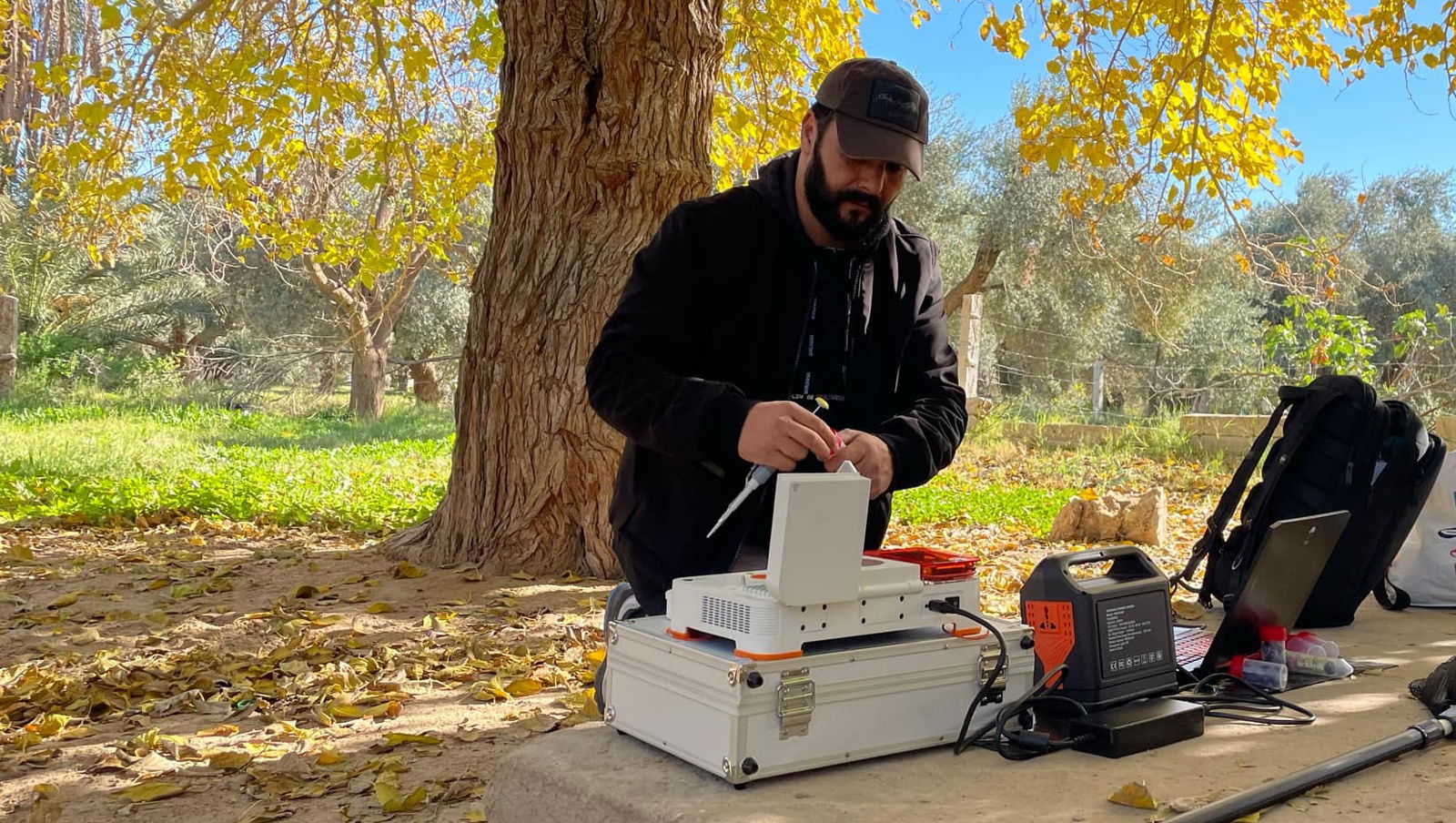
Wild Lab – Dr Amor’ set-up for sequencing in the field
“I’ve run several workshops in the field, covering everything from sampling and DNA extraction, to PCR and gel electrophoresis for confirming samples, to preparing DNA for sequencing with the MinION. They were a big success.”
The capability to process samples on-site has proved invaluable not just for the leopard research, but also for his broader biodiversity studies of bats and their associated microbiome, providing data about species diversity and disease ecology in the region.
When Dr Amor took on a new position at the University of Tunis El Manar, he found a new way to use his mobile equipment – getting his research projects underway while navigating the administrative challenges of setting up a new lab. Faced with bureaucratic delays, his portable lab became a vital resource for both his research and student education.
“The bureaucracy and paperwork have made setting up my lab incredibly difficult. Since returning, I’ve been waiting over a year for essential equipment like a fridge, and it’s been a long process with delays and additional questions. If I didn’t have the Bento Lab, there would be no research, no student work. The Bento Lab has helped me a lot.”
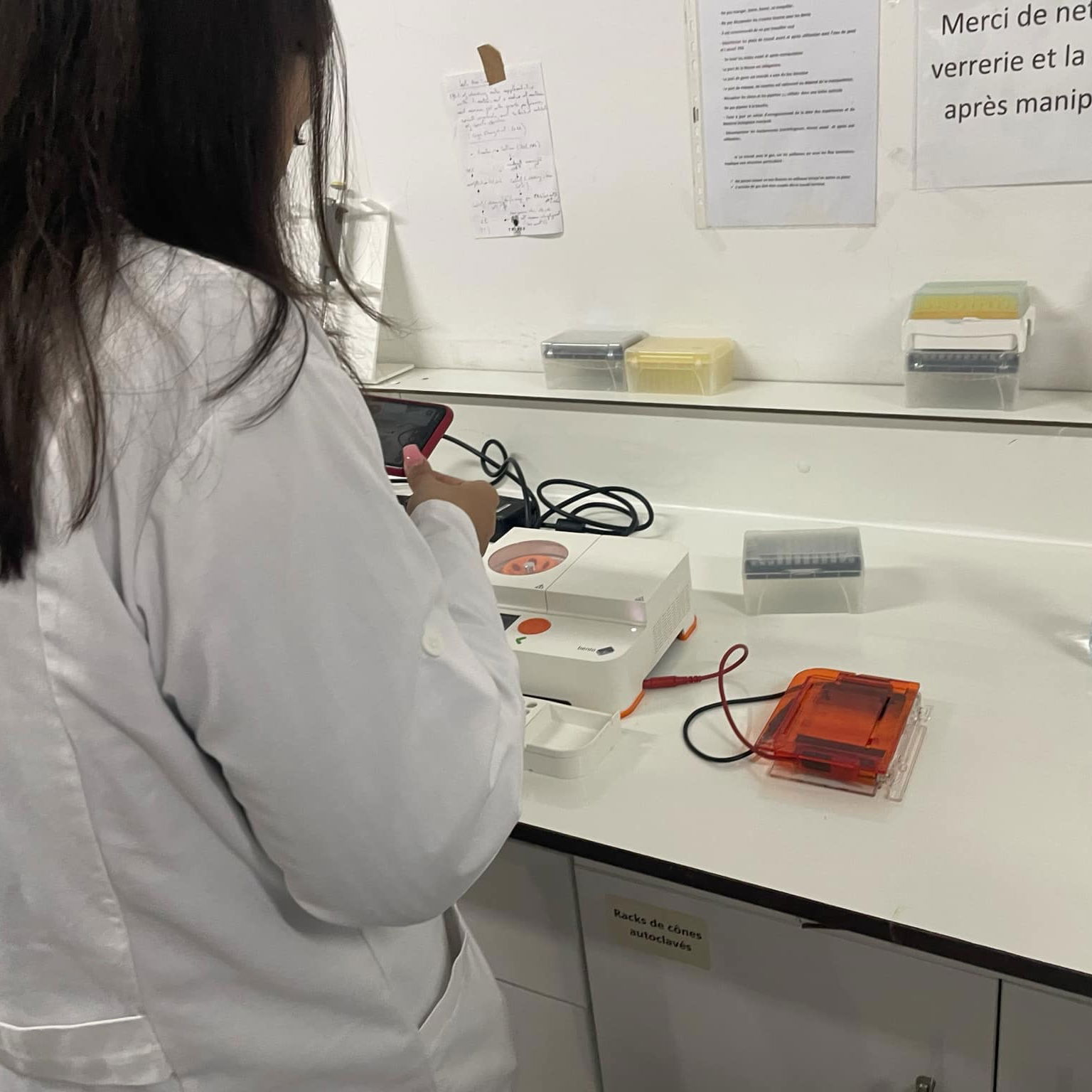
One of Nabil’s students in the lab
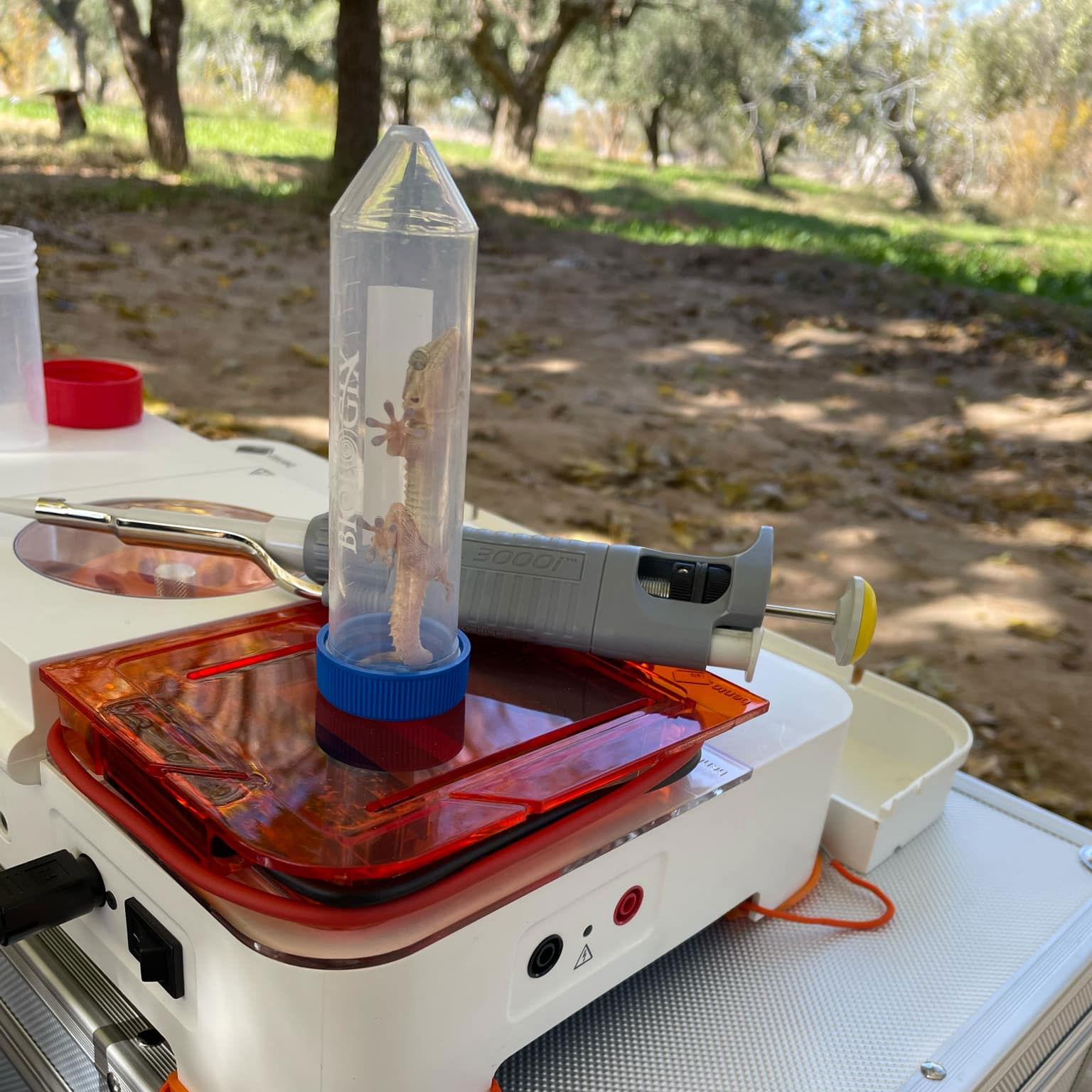
Sampling Tarentola fascicularis (Wolfgang’s wall gecko) – previously considered subspecies of T. mauritanica, their work has shown that T. fascicularis is distinct species.
Today, Dr Amor’s impact extends far beyond his own research. He leads workshops across North Africa, training students and researchers in molecular biology and bioinformatics. His approach is hands-on, moving beyond traditional theoretical instruction to give students practical experience with molecular techniques.
In a testament to the accessibility of his methods, he has even introduced his children to his work – his ten-year-old can now perform DNA extractions, representing the next generation of scientific curiosity and capability.
From proving the existence of endangered species to empowering the next generation of African scientists, Dr Amor’s work shows how innovative approaches to molecular biology can overcome logistical challenges and widen access to scientific research.
Outside of the field
More detail on Dr Amor’s work
Laboratory Research From Home
Before starting his lab at University of Tunis El Manar. Dr Amor continued molecular research from his home after returning to Tunisia. Working alongside his wife and colleague, Dr. Sarra Farjallah, they established a home-based laboratory focused on fish parasites.
Their young children weren’t just spectators — they joined in, helping with experiments and learning alongside their parents in a home research environment.
“It was very, very interesting to do all the science with my children — they assisted us. At 10 years old, my daughter has already done DNA extractions and PCR. That was really exciting.”
The research covered metabarcoding studies on fish ectoparasites, such as Sparicotyle chrysophrii. They have recently published a paper on the gill parasite Lamellodiscus echeneis from seabream in the Mediterranean Sea.
By exploring how parasites spread in wild and farmed fish populations, the research supports efforts to improve sustainable aquaculture practices. This could lead to better biosecurity measures, reducing economic losses in fish farming.
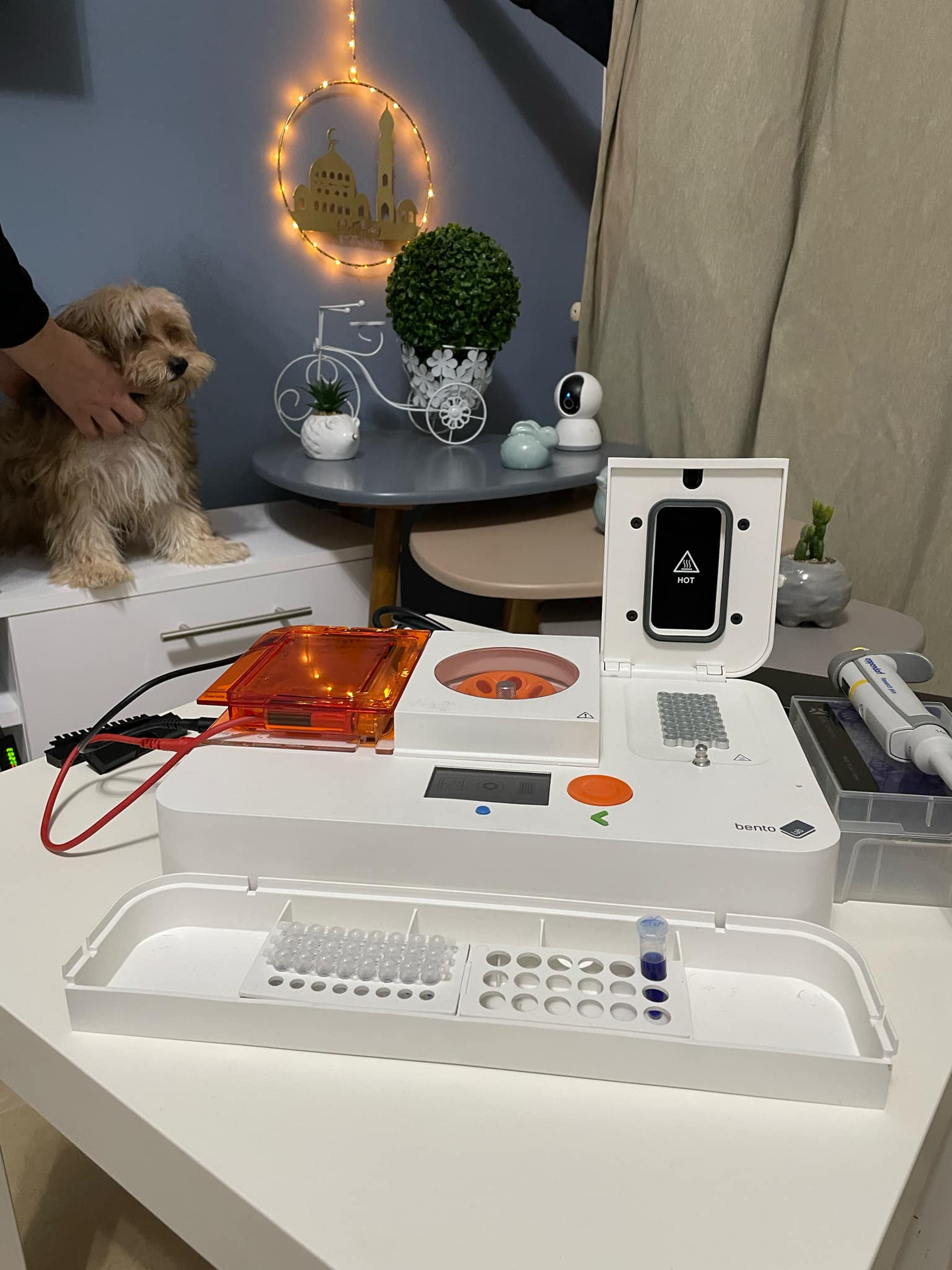
Science at home – Dr Nabil Amor’s set-up
Workshops and Educational Initiatives
Through his affiliation with the African Biogenome Project and collaboration with the French Laboratoire Mixte International (LMI) initiative, Dr Amor is helping to build capacity for genomic research across the continent. He has led workshops across North Africa, training students and researchers from Algeria, Morocco, Tunisia, and Mauritania.
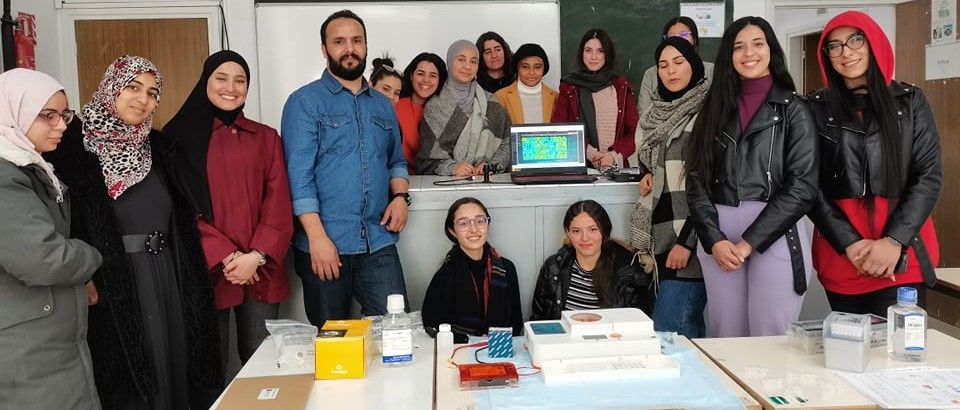
Workshop at the Higher Institute of Applied Biological Sciences of Tunis (ISSBAT)
Through his workshops, he aims to give students direct hands-on experience with laboratory techniques, making advanced molecular biology techniques accessible to a new generation of scientists.
When undergraduate students study molecular biology, they often don’t do bench work, so they are afraid of the techniques. We teach differently – we show them all of the molecular work, and they love it. Many students are so excited that they want to be involved in the research even as undergraduates and that’s a big deal.
His workshops cover the complete environmental DNA workflow:
- Field collection methods for eDNA samples
- Laboratory processing including DNA extraction, PCR, and gel electrophoresis using the Bento Lab for bench work and MinION/Illumina systems for sequencing
- Metabarcoding approaches for species identification
- Bioinformatic analysis of sequence data
Upcoming Workshop
Starting in April 2025, Dr Amor is running an Introduction to Bioinformatics course, a 3-month program focused on key bioinformatics tools and resources. It’s designed for individuals with a molecular biology background who want to become bioinformatics users. Applications are open until 17 March 2025 — find out more here.
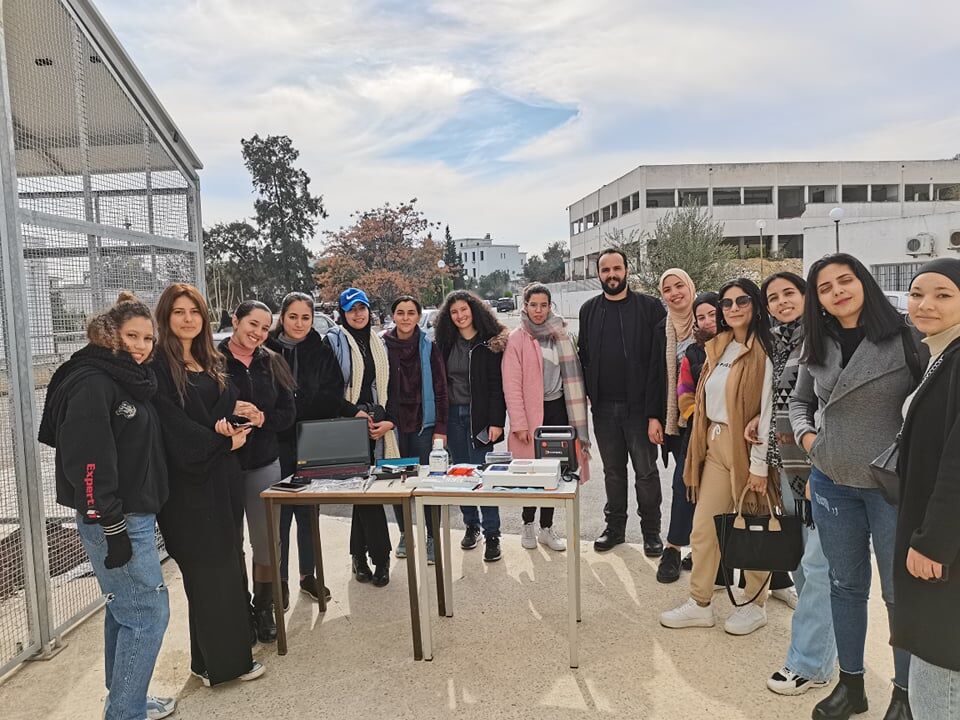
Dr Amor and his students – workshop on using bioinformatics to rescue endangered species
Photos provided by Dr Nabil Amor.
Dr. Nabil Amor is an Assistant Professor at the University of Tunis El Manar in Tunisia. His research focuses on conservation genetics, population genomics, and bioinformatics. His work uses Next-Generation Sequencing (NGS) to study endangered species, including carnivores, bats and lizards.
Explore recent publications
- Farjallah, S., Amor, N., Montero, F.E., Repullés-Albelda, A., Villar-Torres, M., Alagaili, A.N., Merella, P. Assessment of the Genetic Diversity of the Monogenean Gill Parasite Lamellodiscus echeneis (Monogenea) Infecting Wild and Cage-Reared Populations of Sparus aurata (Teleostei) from the Mediterranean Sea. Animals 14, 2653 (2024). https://doi.org/10.3390/ani14182653
- Farjallah, S., Amor, N., Garippa, G. et al. Genetic variation of Sparicotyle chrysophrii (Monogenea: Microcotylidae) from the gilthead sea bream Sparus aurata (Teleostei: Sparidae) in the Mediterranean Sea. Parasitol Res 122, 157–165 (2023). https://doi.org/10.1007/s00436-022-07709-y
- Haghani, A. et al. DNA methylation networks underlying mammalian traits. Science 381, eabq5693 (2023). https://doi.org/10.1126/science.abq5693
- Li, Y.Q., Ghafari, M., Holbrook, A.J., Boonen, I., Amor, N., Catalano, S., Webster, J.P., Li, Y.Y., Li, H.T., Vergote, V., Maes, P., Chong, Y.L., Laudisoit, A., Baelo, P., Ngoy, S., Mbalitini, S.G., Gembu, G.C., Musaba, A.P., Goüy de Bellocq, J., Leirs, H., Verheyen, E., Pybus, O.G., Katzourakis, A., Alagaili, A.N., Gryseels, S., Li, Y.C., Suchard, M.A., Bletsa, M., Lemey, P. The evolutionary history of hepaciviruses. bioRxiv [Preprint]. 2023 Jun 30:2023.06.30.547218. https://doi.org/10.1101/2023.06.30.547218
- Alotaibi, B.H., Amor, N., Merella, P. et al. Genetic diversity of wild rodents and detection of Coxiella burnetii, the causative agent of Q fever, in Saudi Arabia. Vet Res Commun 46, 769–780 (2022). https://doi.org/10.1007/s11259-022-09897-5
- Amor, N., Farjallah, S., Piras, M.C., Burreddu, C., Garippa, G., Merella, P. New insights into the coexistence of Contracaecum rudolphii A and Contracaecum rudolphii B (Nematoda: Anisakidae) in Phalacrocorax carbo sinensis from Sardinia: genetic variability and phylogenetic analysis. Parasitology147, 1538–1551 (2020). https://doi.org/10.1017/S0031182020001341